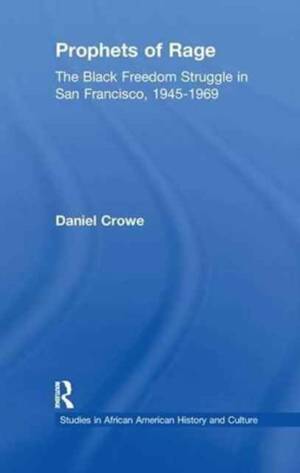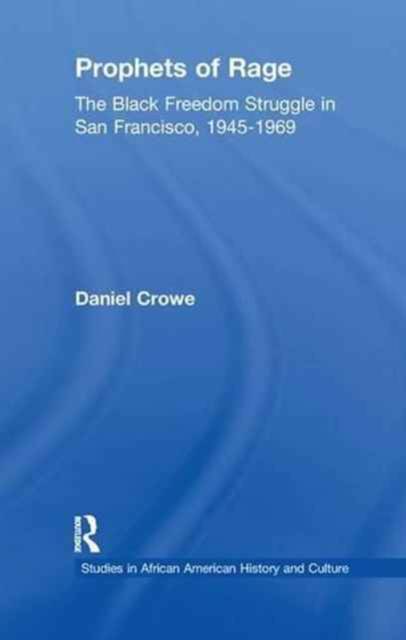
- Afhalen na 1 uur in een winkel met voorraad
- Gratis thuislevering in België vanaf € 30
- Ruim aanbod met 7 miljoen producten
- Afhalen na 1 uur in een winkel met voorraad
- Gratis thuislevering in België vanaf € 30
- Ruim aanbod met 7 miljoen producten
Zoeken
€ 102,45
+ 204 punten
Omschrijving
The Black Panther Party has been at once the most maligned and most celebrated Black Power organization, and this study explores the party's origins in the tumultuous history of race relations in the San Francisco Bay Area after the Second World War. The massive influx of African American migrants into the Bay Area during the war years upset the racial status quo that the white majority and tiny black minority had carefully crafted and maintained for more than a century. This realignment of racial boundaries strained relations between whites and blacks, and the postwar crises of black unemployment, inadequate housing, segregated schools, and police brutality produced in the Bay Area a virtual race war that culminated in the black revolution of the 1960s. Despite the attempts of moderate African American leaders to push for civil rights and black equality in the 1950s and 1960s, a new generation of militants came to the fore in the 1960s. Emerging from the direct-action protests of the Congress of Racial Equality and the Community Action Programs of the War on Poverty, this new radical leadership agitated for black self-determination and trumpeted black pride and self-sufficiency. From this maelstrom sprang the Black Panther Party, led by two ghetto toughs whose families had fled Dixie for the promised land of California during the Second World War. These prophets of rage would transform the nature of African American protest, change the character of domestic policy, and redefine the meaning of blackness in America. Also inlcludes maps.
Specificaties
Betrokkenen
- Auteur(s):
- Uitgeverij:
Inhoud
- Aantal bladzijden:
- 328
- Taal:
- Engels
- Reeks:
Eigenschappen
- Productcode (EAN):
- 9781138984004
- Verschijningsdatum:
- 22/09/2016
- Uitvoering:
- Paperback
- Formaat:
- Trade paperback (VS)
- Afmetingen:
- 140 mm x 216 mm
- Gewicht:
- 376 g

Alleen bij Standaard Boekhandel
+ 204 punten op je klantenkaart van Standaard Boekhandel
Beoordelingen
We publiceren alleen reviews die voldoen aan de voorwaarden voor reviews. Bekijk onze voorwaarden voor reviews.








